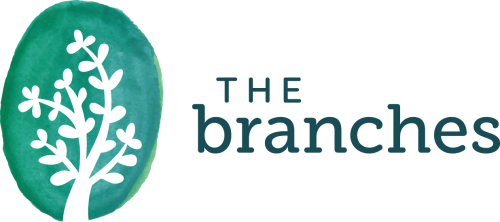Our Anti-Racist Book Club was active from July 2020-April 2022 and over that time we discussed six books. We are currently on pause with the book club as we re-imagine other forms it could take. Please get in touch if you're passionate about the possibility of an Anti-Racist book club and want to get involved.
Previous Books:
- All About Love: New Visions by bell hooks
- The Body Is Not An Apology: The Power of Radical Self Love by Sonya Renee Taylor
- Embrace Yoga's Roots: Courageous Ways to Deepen Your Yoga Practice by Susanna Barkataki
- A Mind Spread Out on the Ground by essayist Alicia Elliot
- The Skin We're In: A Year of Black Resistance and Power by Canadian activist and journalist Desmond Cole
- White Fragility: Why It's So Hard for White People to Talk About Racism by facilitator Robing D'Angelo. We started with this book because it came highly recommended by several individuals in our community as a starting point for white folks who are engaging with anti-racist work.
Why are we doing this?
Silence and inaction are not options. The non-stop occurrence of horrific injustices enacted on BIPOC, but lately especially the Black and Indigenous communities, have us feeling exasperated and sorrowful. We’re asking ourselves, what does it look like, not simply to welcome diversity in our community of practice, but to actively do the anti-racist work of dismantling white supremacy? It's clear that injustice and violence won’t magically disappear without the vocal and active allyship and accompliceship of the White community.
While our leadership and teaching teams include individuals of Asian and Black heritage, the majority of the QSY operation at this time is white. So, we’re continually learning how to do this work, and hope to lead our community, as a mostly-but-not-all-white organization.
This work can take many forms, and expressing our outrage online is perhaps better than silence. Our YTT program has had an on-going thread of anti-oppression learning since its inception, but why would we stop with only our teacher trainees?
In the summer of 2020, we attended the impressive march organized by the Anti-Racism Community Collective. In 2021, several of our administrative staff and teachers took Selam Debs’ Anti-Racism Course. We recognize that the work is never done, and we're ready to keep going. We’re calling on our community to join us in a deeper commitment.
One idea we would like to explore with our community is an anti-racist bookclub. The intention of this book-club is to educate ourselves in a community learning space. It’s important to us that participants pay for the learning resources created by Black, Indigenous and racialized authors. We’re imagining shared responsibility for upholding a brave space, gathering in real time to share in conversation, and buying books from a local independent book retailer.
How our meetings work
The intention of this book club is to provide a community space for learning and reflection. We guide our gatherings using the Conversation Cafe principles and format. This means that all participants share responsibility for following guidelines and upholding a brave space.
Each meeting, we will take time for:
Introductions: briefly, sharing names, and as preferred, what pronouns you use
Review: as needed, review the Conversation Cafe principles and format, and appoint timekeepers if we need to split up into breakout rooms (depends on size of whole group)
Discussion: the majority of the meeting time
Open-mindedness: Listen to and respect all points of view.
Acceptance: Suspend judgement as best you can.
Curiosity: Seek to understand rather than persuade.
Discovery: Question assumptions, look for new insights.
Sincerity: Speak from your heart and personal experience.
Brevity: Go for honesty and depth but don’t go on and on.
Introduce Topic: 2 min
We'll always have a dedicated section of the text we're working with, and participants can respond to the general prompt: "What is on your heart and mind about the reading and learning you have been doing?" Sometimes we select specific questions from the text or reading guides.
Opening Round: ~10-15 min
Pass around the talking object* and each person speaks briefly to the topic -- in this round there is no feedback or response from others.
Dialogue: ~15-20 min
Open, spirited, back and forth conversation. (Use talking object*/step in if there is domination, contention, or lack of focus.)
Final Round: ~10-15 min
With talking object* (no feedback or cross talk), each person shares briefly what challenged, touched or inspired them.
*Note: while our meetings take place online, in place of passing a talking object, each participant names a co-participant to whom to pass the speaker’s role. For example, “I call on Emma.”
